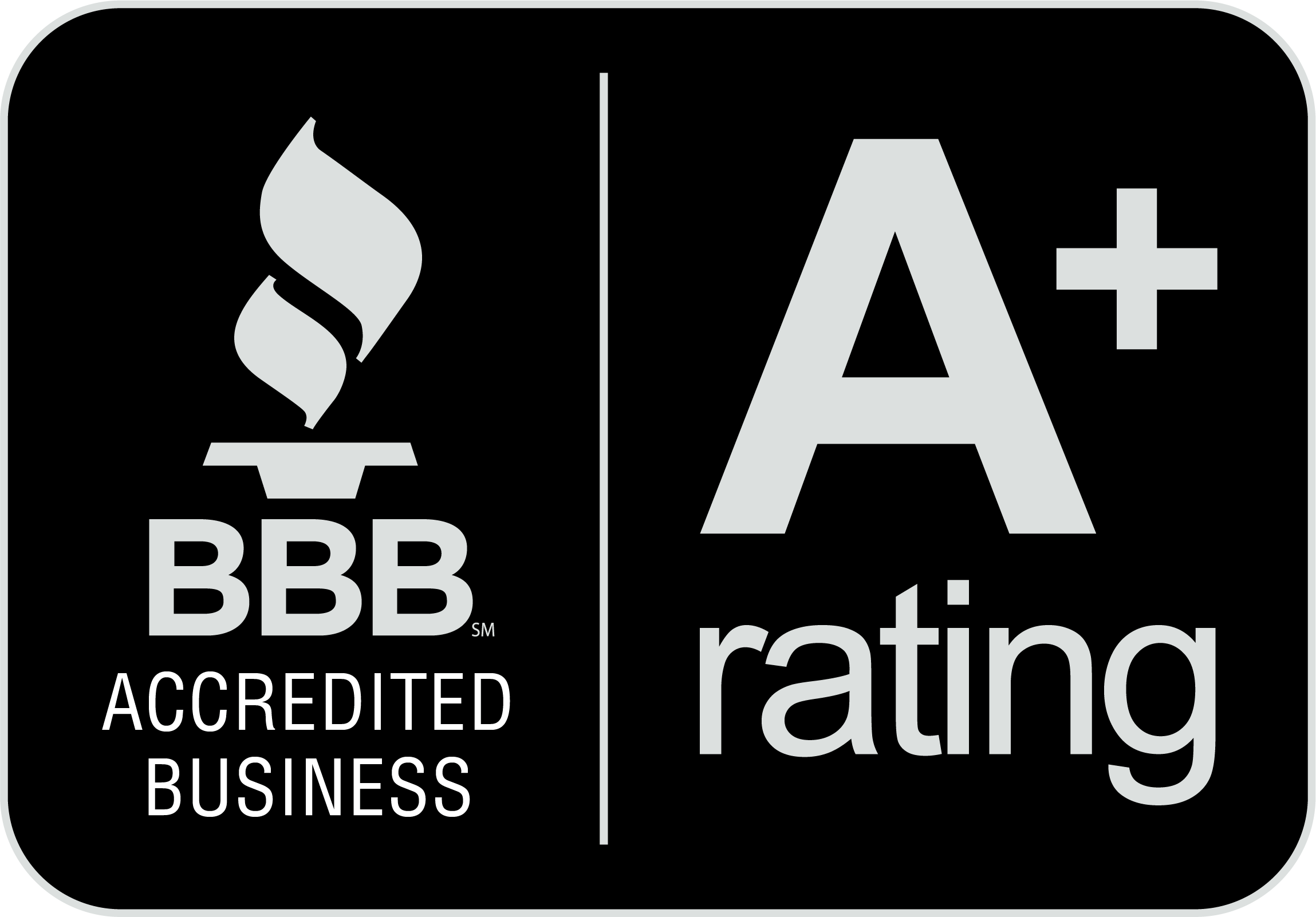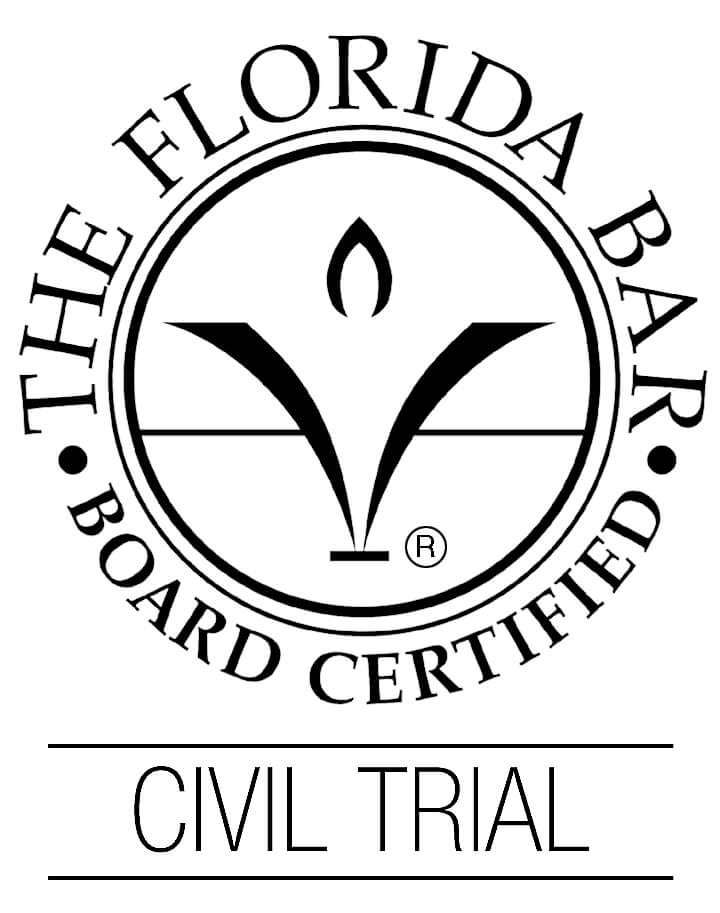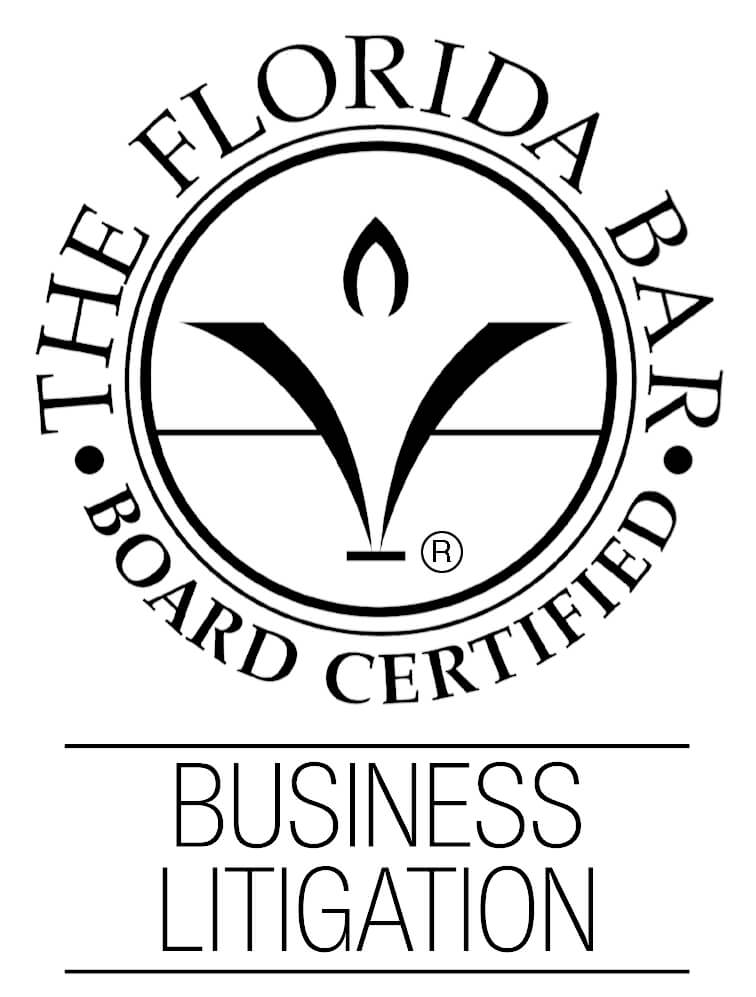Boating Accidents
Florida’s waterways are among the most beautiful in the country. But every year, hundreds of boating crashes across the state lead to serious injuries, unexpected losses, and overwhelming questions about what to do next.
If you or someone you love has been hurt in a boating accident, it’s natural to feel confused, frustrated, or unsure of your rights. The aftermath may leave you with difficult questions, but know that you don’t have to figure them out alone.
The Nation Law Firm is here to help you navigate all of it. From collecting evidence to pushing back when decisions aren’t in your favor, our team knows what it takes to pursue accountability and secure the compensation you deserve.
Get started today with our free case evaluation.
Common Causes of Boating Accidents
Boating accidents happen far more often than many realize in Florida’s lakes, rivers, and coastal waters. When they do, it’s often because someone failed to act responsibly.
Some of the most common causes of boating accidents in Florida include:
- Inexperience: Boating isn’t like driving a car. Many accidents happen because the driver lacks training, experience, or knowledge of Florida’s navigation rules.
- Excessive speed: Speeding can make it harder to avoid collisions, especially in crowded or unfamiliar waters.
- Alcohol or drug use: Impaired operation remains one of the top contributors to serious and fatal boating crashes in Florida.
- Mechanical failure: Poorly maintained engines, steering, or safety systems can fail without warning, endangering everyone on board.
- Poor weather conditions: Sudden storms, strong currents, or limited visibility can turn a routine outing into a dangerous situation.
- Distracted operation: Just like with cars, texting, talking, or simply not paying attention can lead to disaster on the water.
When someone’s reckless or negligent behavior leads to an accident, innocent passengers and other boaters often pay the price. If you or someone you love was hurt in a boating accident, understanding what caused it is the first step toward holding the right party accountable.
Types of Injuries in Boating Accidents
Injuries from boating accidents can vary widely, depending on the unique circumstances of the crash. Some people walk away with minor bruises, while others face more serious injuries that may require long-term medical care.
Some of the more common injuries that can result from boating accidents include:
- Drowning or near-drowning: Particularly in cases where passengers are thrown overboard or safety gear isn’t properly used
- Head and brain injuries: Caused by impact with hard surfaces, falls, or being struck by equipment or another vessel
- Broken bones and fractures: Often result from collisions, sudden stops, or being tossed around on board
- Lacerations and burns: Can occur due to contact with propellers, exposed hardware, or onboard fires
- Spinal injuries: Sudden impact or awkward falls may lead to back or neck injuries, some of which can be serious
- Soft tissue damage: Muscle strains, whiplash, and joint injuries are also common in boat crashes
Some injuries, like cuts or broken bones, are immediately obvious. Others, such as concussions, internal injuries, or joint damage, can develop gradually over time.
It’s always a good idea to get checked by a medical professional after a boating accident, even if symptoms seem mild at first, to make sure you know the full scope. An early diagnosis gives you the best chance of walking away pain-free, while also forming a solid foundation for future legal claims.
Legal Responsibilities of Boat Operators
Every boat operator in Florida has a legal responsibility to act with reasonable care when operating a vessel. This “duty of care” means taking the kinds of precautions any responsible operator would. Not just for their own safety, but for passengers, other boaters, and anyone else on the water.
Some legal duties of boat operators in Florida include:
- Following navigation and safety rules: Operators must follow established boating laws, including posted speed limits, right-of-way rules, and no-wake zones.
- Avoiding reckless or impaired operation: Boating under the influence of drugs or alcohol is illegal and one of the leading causes of serious boating accidents in the state.
- Providing necessary safety equipment: Boats must carry appropriate safety gear, including life jackets for all passengers, fire extinguishers, and proper lighting.
- Maintaining control of the vessel: Operators are responsible for knowing how to handle their boat in changing conditions, including sudden weather shifts or crowded waterways.
- Rendering aid after an accident: Florida law requires operators involved in an accident to stop, provide assistance, and report the incident to authorities when injuries or significant damage occur.
When someone fails to meet these responsibilities and an accident occurs, they may be held legally liable for the injuries and damages that result. Proving that a boat operator breached their duty of care is often a critical step in a personal injury claim, and it’s where The Nation Law Firm can make all the difference.
Steps to Take After a Boating Accident
It’s not easy to remember what to do after a boating accident, but taking the right steps can help protect your health, your rights, and your ability to pursue compensation later on.
Here are some important steps to take after a boating accident in Florida:
- Check for injuries and call for help: If anyone is injured, call 911 or use a marine radio to contact emergency services immediately. Prioritize safety, and avoid moving injured individuals unless absolutely necessary.
- Report the accident: Florida law requires boating accidents to be reported to the appropriate authorities (Florida Fish and Wildlife Conservation Commission (FWC), county sheriff, or local police) if there are injuries, fatalities, or significant property damage.
- Seek medical attention: Even if you feel okay, it’s important to be examined by a medical professional. Some injuries, like head trauma or internal bleeding, may not be obvious right away.
- Document the scene: If it’s safe to do so, take photos of the boats, injuries, damage, equipment, and surroundings. Get contact and insurance information from other parties involved and collect witness statements if possible.
- Speak with an attorney before speaking with insurers: Insurance companies may contact you soon after the accident, sometimes before you fully understand your injuries or your rights. Our team can help you prepare for this conversation, avoid common pitfalls, and make sure you’re putting the best foot forward.
At the scene, avoid apologizing or admitting fault. These statements can be used against you later, even if you’re just trying to be polite or helpful.
Liability in Boating Accidents
Determining who is legally responsible for a boating accident is often more complicated than it seems. In many cases, more than one person or entity may share fault. Under Florida’s modified comparative negligence rule, the amount of compensation you can recover may be reduced if you are found partially at fault for the accident.
In boating accidents, some of the most common liable parties include:
- The operator: Negligent actions, like speeding, ignoring navigation rules, or operating under the influence, are leading causes of boating-related injuries in Florida.
- The boat’s owner: Owners may be held responsible if they allowed an unqualified person to operate the vessel or failed to keep the boat in safe working condition.
Other parties can also be responsible, depending on the circumstances. If a defective part or mechanical failure played a role, the manufacturer or a repair company might be at fault. In rare cases, a marina or waterfront property owner could be liable for hazardous conditions they knew about but failed to address.
Liability often involves multiple factors, which means proving fault requires a careful review of maintenance records, accident reports, witness accounts, and other evidence. If you’re unsure, The Nation Law Firm can help make sure no detail is overlooked and that your rights are protected from the start.
Florida Boating Laws and Regulations
Florida has more registered boats than any other state. With so much traffic on the water, safety regulations form the boundaries to prevent accidents.
Some of the most important requirements include:
- Boater safety education: Anyone born on or after January 1, 1988, must complete an approved boating safety course to operate a vessel powered by 10 horsepower or more.
- Safety equipment: Boats must carry properly fitting life jackets for each person on board, as well as other equipment like fire extinguishers, navigation lights, and sound-producing devices.
- Speed and navigation rules: Operators must follow posted speed limits and “no wake” zones, and give way according to established right-of-way rules.
- BUI laws: Much like a car, operating a boat under the influence of alcohol or drugs is illegal and carries similar penalties to DUI, including fines, license suspension, and possible jail time.
- Accident reporting: Certain accidents must be reported to law enforcement or the Florida Fish and Wildlife Conservation Commission (FWC), particularly those involving injuries, death, or significant property damage.
These rules apply whether you’re boating on the St. Johns River, the Intracoastal Waterway, or any other Florida waterway. They’re designed to protect everyone on the water, but they’re not always followed. If another boater ignored these requirements and caused harm, proving their failure to act responsibly is a main part of your future claim.
Filing a Personal Injury or Wrongful Death Claim
If you’ve been injured or lost a loved one in a boating accident, the idea of starting a legal claim can feel uncomfortable and overwhelming. The first step may look like a mountain, but know that the other side is well worth it.
The first step is to have a conversation with an attorney knowledgeable of Florida’s boating laws and personal injury process. This gives you a chance to tell your story, ask questions, and get an honest opinion about whether you have a case.
If you decide to move forward, your attorney will begin by investigating the accident. This might include gathering police or FWC reports, reviewing medical records, interviewing witnesses, and examining photographs or videos of the scene.
Next, you’ll be building your claim for compensation. In boating accidents, damages can include medical expenses, lost income, future care costs, property damage, and pain and suffering. In wrongful death cases, surviving family members may also seek compensation for funeral expenses, loss of companionship, and other related losses.
Once your attorney has assembled the evidence, they’ll negotiate with the insurance company on your behalf. If the insurer refuses to make a fair offer, your attorney can file a lawsuit and prepare to take the case to court.
Throughout the process, your lawyer’s role is to protect your rights, keep you informed, and work toward the best possible outcome, so you can focus on recovery and rebuilding.
Common Challenges in Boating Accident Cases
Boating accident claims are some of the more complex personal injury cases. From determining fault to dealing with insurance companies, there are often hurdles that can slow down or complicate the process.
Determining Liability
Unlike car accidents, boating collisions don’t always have clear traffic patterns or recorded video footage. They may involve multiple vessels, passengers, or equipment manufacturers, and piecing together fault often requires technical knowledge and a detailed investigation.
Gathering the Right Evidence
Weather and water conditions change quickly, and important details, like vessel positioning, hazard visibility, or debris location, may be lost within hours.
Common evidence includes GPS tracking data, maintenance logs, Coast Guard or Florida Fish and Wildlife reports, and witness statements. The sooner this information is gathered, the stronger your case may be.
Uncooperative Insurance Companies
Florida does not require boat owners to carry liability insurance, which can make recovering damages more complex. Even when coverage exists, insurers may dispute fault, question the severity of injuries, or offer less than what the claim is worth.
Proving Damages
Along with proving that an accident occurred, you must also prove the financial and personal impact you’ve felt from the accident. That may involve medical records, employment documentation, expert testimony, or all of the above.
The Role of Attorneys in Boating Accident Claims
After a boating accident, it’s easy to feel overwhelmed — especially if you’re trying to recover from injuries while navigating insurance claims, medical bills, and legal questions. Law firms like us exist for these very moments to support your next steps and help advocate for what you need to recover.
From investigating the accident and gathering critical evidence to negotiating with insurance companies and, if necessary, representing you in court, our team’s job is to protect your rights and pursue the compensation you deserve.
We combine the resources to take on tough cases with the personal commitment of a local Longwood team. We’ve helped Florida residents recover after serious boating accidents, and we’re here to do the same for you.
Get started today with our free case evaluation.
Preventing Boating Accidents
Not every accident can be avoided, but the right preparation and safety measures make a difference on the water.
Some safety tips to encourage and follow include:
- Complete a boating safety course: Even experienced boaters can benefit from updated training on navigation rules, emergency procedures, and equipment use to keep themselves and others safe.
- Check your equipment before leaving shore: Inspect the engine, fuel system, lights, safety gear, and communication devices before every trip.
- Follow posted speed limits and “no wake” zones: These rules are in place to protect both boaters and the surrounding environment.
- Avoid alcohol and drugs while operating a vessel: Impairment slows reaction times and increases the risk of serious accidents.
- Stay aware of weather conditions: Florida weather can change quickly. Always check the forecast before you go, and postpone your trip if storms, strong winds, or reduced visibility are expected.
- Wear a life jacket: Make sure everyone on board has a properly fitting life jacket, and wear it while the boat is in motion.
By taking these precautions, you can reduce your risk of an accident and help keep Florida’s waterways safe for everyone. And if the unexpected does happen, knowing your rights and where to turn for help makes the next steps more manageable.
Frequently Asked Questions
What are the most common causes of boating accidents in Florida?
Operator inexperience, speeding, alcohol or drug use, mechanical failures, distracted operation, and sudden weather changes are among the top causes of boating accidents in the state.
Who can be held liable for injuries in a boating accident?
Potentially liable parties include the boat operator, the vessel’s owner, a manufacturer of defective equipment, or, in rare cases, a marina or property owner who failed to address known hazards.
What steps should I take immediately after a boating accident?
Check for injuries and call for help, report the accident to the proper authorities, seek medical attention, document the scene, and speak with our team before dealing with insurance companies.
Does Florida law require boat operators to carry insurance?
No, Florida does not require boat owners to carry liability insurance, though having coverage can make it easier to recover damages after an accident.
Can I file a claim if I was injured as a passenger on a boat?
Yes. Passengers have the right to seek compensation if the accident was caused by someone else’s negligence.
What types of compensation are available for boating accident victims?
You may be able to recover damages for medical expenses, lost wages, pain and suffering, property damage, and, in wrongful death cases, funeral costs and loss of companionship.
How long do I have to file a boating accident injury claim in Florida?
In most cases, Florida law gives you two years from the date of the accident to file a personal injury lawsuit, though exceptions can apply. Still, it’s best to file sooner rather than later if possible.
How is negligence proven in a boating accident case?
Negligence is typically proven by showing that the responsible party had a duty of care, failed to meet that duty, and caused your injuries as a result, often using accident reports, witness statements, and other evidence.
What are the most important safety measures to prevent boating accidents?
Complete a boating safety course, follow navigation rules, check your vessel and equipment before every trip, avoid alcohol or drugs while operating, and always wear a life jacket.
How can an attorney help me with my boating accident case?
The Nation Law Firm can investigate the accident, gather and preserve evidence, negotiate with insurance companies, and represent you in court if needed, allowing you to focus on recovery.






.svg)
